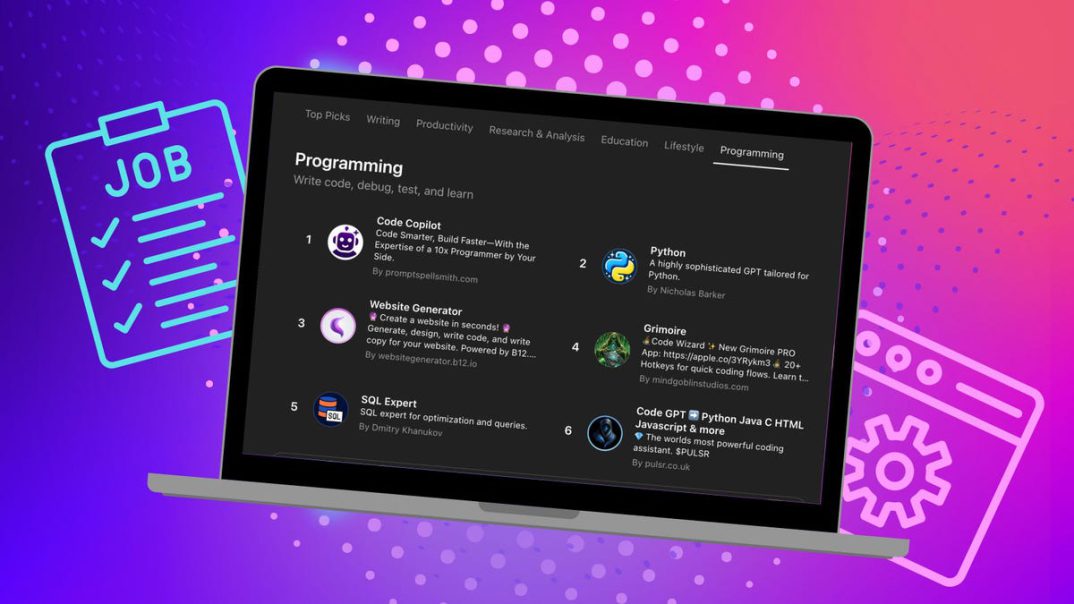ZDNET
Generative AI has only been around for two years as an emerging technology, but it has already taken its place as a must-have tool for technology professionals. Job postings mentioning gen AI increased by a factor of 3.5x over the past year. For technology professionals, this points to a shift in emphasis in their day-to-day work. But given that it is now a mainstream skill, is it even necessary to include gen AI competencies in postings anymore?
Also: 15 surprising ways I used AI to save me weeks of work in 2024
Gen AI mentions in job postings are the most prominent in the data analytics, software development, and scientific research fields, a recent survey out of Hiring Lab finds. Ironically, gen AI-related job postings are below expectations in industries that seem natural candidates for gen AI, including the insurance, logistic support, and medical information sectors. Sectors exceeding expectations include architecture, arts and entertainment, and industrial engineering.
Still, it’s likely gen AI adoption is everywhere within technology ranks, regardless of industry or level of experience, industry observers point out. The advantages are so compelling that it’s likely as natural as keyboarding skills at this point.
Transformative tools
For starters, gen AI “is reinventing productivity and efficiency in software development, giving developers more time for strategic and creative work,” Paul McDonagh-Smith, senior lecturer of IT at MIT Sloan Executive Education, told ZDNET. These tools are proving transformative in just about every area of software development, including code generation, testing, debugging, and documentation, he added. “In streamlining repetitive coding tasks, these tools are allowing developers to move more quickly onto more complex software design and problem-solving.”
Also: If ChatGPT produces AI-generated code for your app, who does it really belong to?
“Let’s be direct: most of the early challenges around AI tools have been solved,” said Nate Berent-Spillson, senior vice president of product engineering at NTT DATA. “Yes, there was justified concern about initial missteps and information leakage into models, but we’re past that now.”
Massive productivity gains
Even the most experienced technology professionals are benefiting from the assistance they receive from gen AI. “They’re achieving massive productivity gains by directing AI to handle specific tasks using established patterns,” he continued. “Their deep understanding of software patterns lets them effectively conduct the AI, even switching programming languages with remarkable ease. We’ve seen experienced developers pick up entirely new languages like Rust and become immediately productive.”
Also: I’m an AI tools expert, and these are the only two I pay for
Most importantly, “AI is eliminating the toil that consumes senior developers’ time,” Berent-Spillson said. “Take pull request reviews — by having AI perform initial passes and provide instant feedback to developers, we’re significantly reducing cycle times and freeing up senior engineers for higher-value work.”
Developers are shifting
As part of this trend, “we are witnessing developers shift from writing code to orchestrating AI agents,” said Jithin Bhasker, general manager and vice president at ServiceNow. The efficiency gained from gen AI adoption by technologists isn’t just about personal productivity, it’s urgent “with the projected shortage of half a million developers by 2030 and the need for a billion new apps,” he added.
Also: 25% of enterprises using AI will deploy AI agents by 2025
Gen-AI tools serve as assistants to seasoned professionals while helping less-experienced professionals get up to speed. “In some ways we might characterize these tools as mentors — offering syntax suggestions, debugging assistance, and code optimization tips,” McDonagh-Smith said. “Developers with less experience, who might not yet be comfortable with coding conventions and complex algorithms, are coached by this form of guidance. While experienced developers are also using generative AI tools to secure productivity gains, I think the relative impact on early-career developers is more pronounced because AI helps them build capability and confidence to build and trouble-shoot their foundational knowledge gaps quickly.”
Exercising caution
Still, as gen AI becomes a commonplace tool in technology shops, Berent-Spillson advises caution. “The real game-changer here is speed, but there’s a catch,” he said. “While AI can dramatically compress cycle time, it will also amplify any existing process constraints. Think of it like adding a supercharger to your car — if your chassis isn’t solid, you’re just going to get to the problem faster.”
Exercise caution “regarding code quality, maintainability, and IP considerations,” McDonagh-Smith advises. “While syntactically correct, AI tools have been seen to create code that’s logically flawed or inefficient, leading to potential code degradation over time if not reviewed carefully. We should also guard against software sprawl where the ease of creating AI-generated code results in overly complex or unnecessary code that might make projects more difficult to maintain over time.”
Also: The most popular AI tools of 2024 (and what that even means)
One’s ability to leverage gen AI’s benefits “directly correlates with technical maturity,” Berent-Spillson also pointed out. “Organizations using cloud-native patterns, everything-as-code approaches, and high automation are seeing immediate gains. But if you’re still anchored to manual processes and heavy documentation, you’ll face more hurdles. AI excels at working with structured inputs — code that compiles has inherent structure by design. When you’re doing contract-first development, for instance, AI can immediately understand and interact with endpoints because the patterns are clear and well-defined.”
Gen AI is helping
Ultimately, gen AI is helping to “increase a company’s creativity quotient,” said McDonagh-Smith. “When I’ve seen gen-AI tools used effectively in software teams, I’ve noticed that in addition to providing productivity gains, the tools give developers time back that can be used for creative problem-solving and experimentation.”




